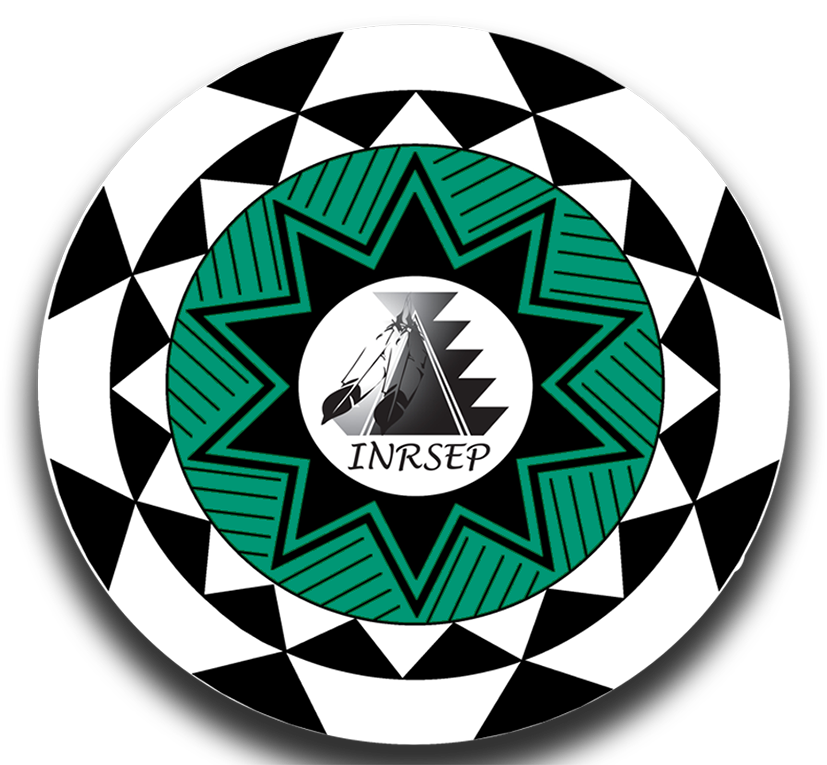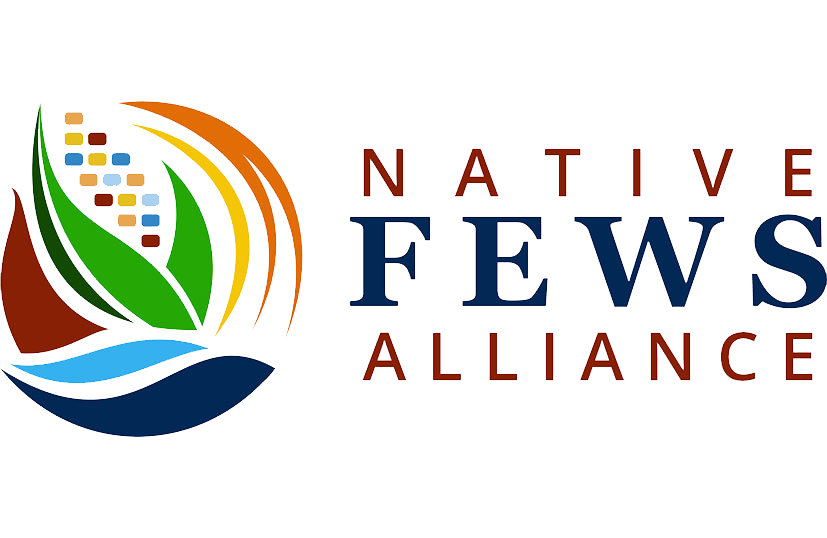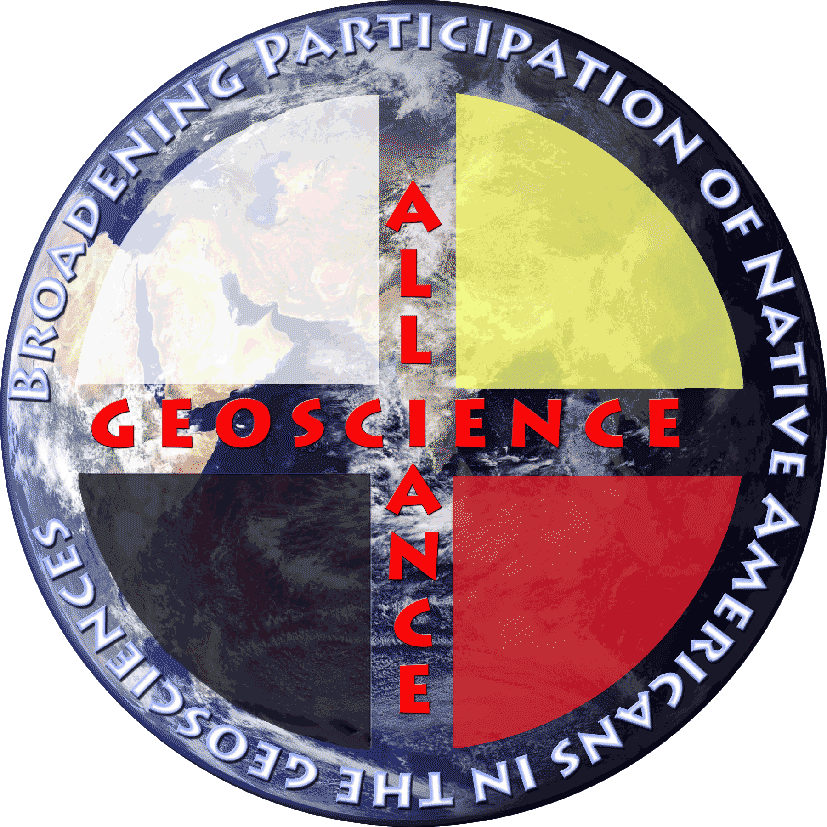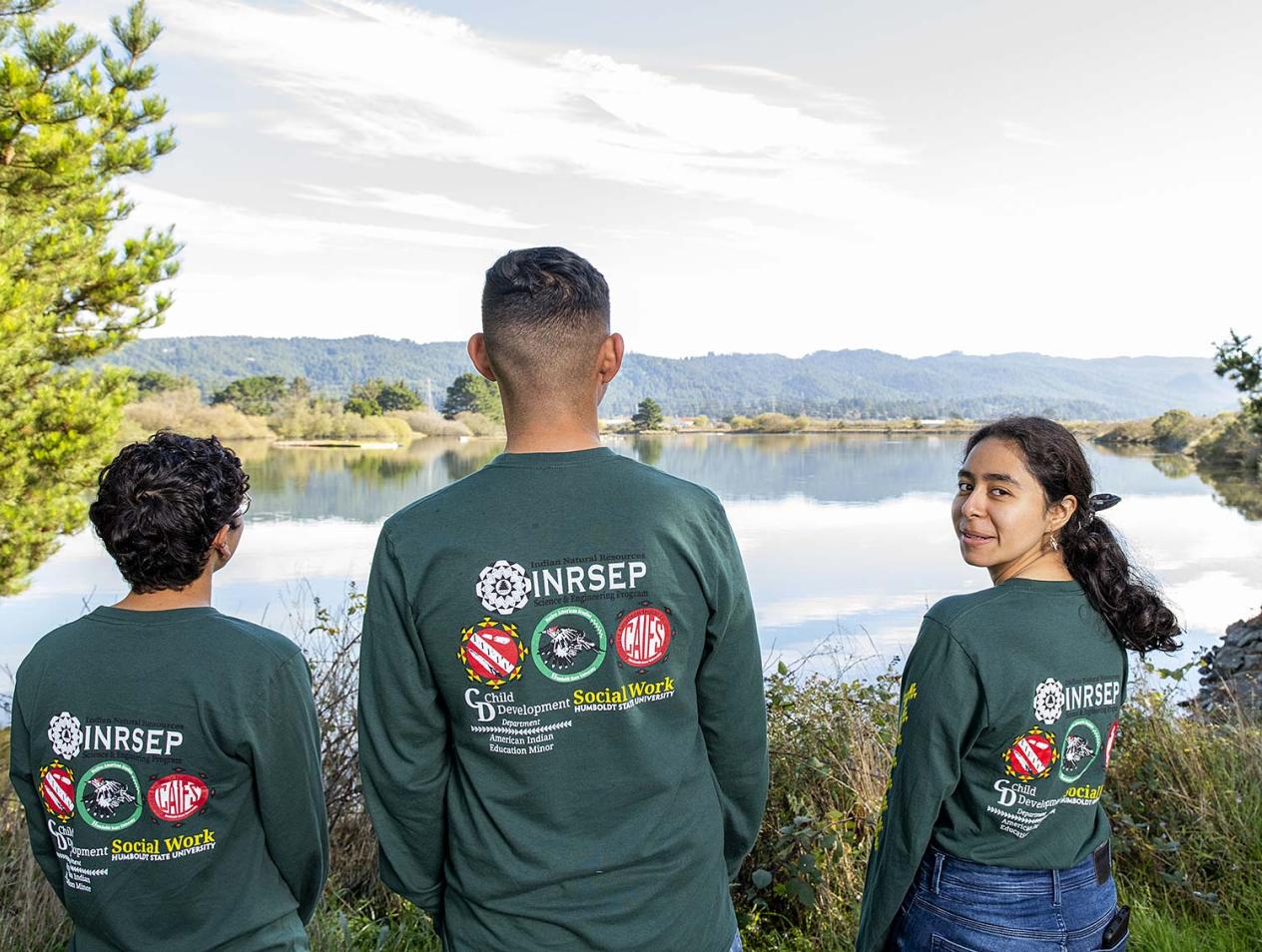Breadcrumb
Indian Natural Resources, Science & Engineering Program

Braiding Science, Culture, and Community
INRSEP provides academic and research support services to first generation, low income, and other students in STEMM disciplines with a focus on American Indian communities and Traditional Ecological Knowledge (TEK). Through community based participatory research, we strive to work as partners with local tribal and other communities, learn through Indigenous knowledge lenses, and contribute to each community’s respective goals. INRSEP accommodates diverse methodologies of working with the natural world and draws from the Traditional Ecological Knowledges and Sciences of both Indigenous peoples and the western world.
Blending community and professional engagement with academic advising and holistic mentorship by providing bridges to key campus and community resources, our INRSEP advisors foster student-faculty connections and encourage students to consider their academic and career pathways after graduation. We serve students by connecting them to research opportunities, providing academic and career counseling, assisting with entrance into graduate programs, and fostering an inclusive and supportive learning community.
INRSEP History
In 1974, INRSEP was originally founded as the Native American Career Education in Natural Resources (NACENR) program. Its mission was to locate and train students for professional resource management positions either within American Indian communities, or in federal, state and private resource management careers. In 1991, the mission and programming of NACENR expanded and evolved into the Indian Natural Resources, Science & Engineering Program (INRSEP). Over the years, INRSEP expanded to serve all eligible students pursuing degrees in the STEMM disciplines, yet the vision and methods of the student support program remained rooted in the integration of Indigenous peoples’ Traditional Ecological Knowledge and Sciences within the mainstream approach to science.
Now located in the COMPASS house, INRSEP retains its goals, thrives, and cross pollinates with a constellation of programs which serve students from all groups including first generation and low-income students.
Affiliated Programs

Native FEWS Alliance
Native Food, Energy, and Water Systems Alliance
Significantly broadening the participation of students in Food, Energy, and Water Systems (FEWS) education and careers to address critical challenges facing Indigenous communities, the dual vision of the Native FEWS Alliance is to be at the nexus of Food, Energy and Water Systems and to co-innovate and deploy Indigenous place-based FEWS education and community partnerships while building a highly skilled workforce.
COMPASS facilitates student integration with Native FEWS research mentors, graduate school connections, and career connections. FEWS is a systems nexus with a community based approach in which students have the opportunity to network and receive feedback from Native FEWS scientists and engineer industry professionals and collaborate with Native communities and their knowledge in co-designing solutions to the challenges they face.

Geoscience Alliance
The Geoscience Alliance (GA) is a national alliance of individuals committed to broadening the participation of students in the Geosciences. Its members are faculty and staff from universities, Tribal Colleges, and research centers; Native elders and community members; industry and corporate representatives; students; formal and informal educators, and a plethora of interested individuals.
AISES
The American Indian Science and Engineering Society (AISES) is a national nonprofit organization focused on substantially increasing the representation of student participation and retention in science, technology, engineering, math, and medicine (STEMM) studies and careers. AISES goal is to create a strong and empowered cultural community of STEMM scholars and professionals that contributes to the empowerment, retention, graduation, and personal growth of students.
AISES connects people to resources and STEMM opportunities and nurtures educational success in STEMM by facilitating programs designed to nourish relationships and provide networking, internships, fellowships, training, and mentoring. AISES resources include scholarships and internships, workforce and career development, national and regional conferences, science fairs, leadership development and other STEMM focused programming for a student’s professional, academic, and emotional support to help navigate their academic and career journeys.






